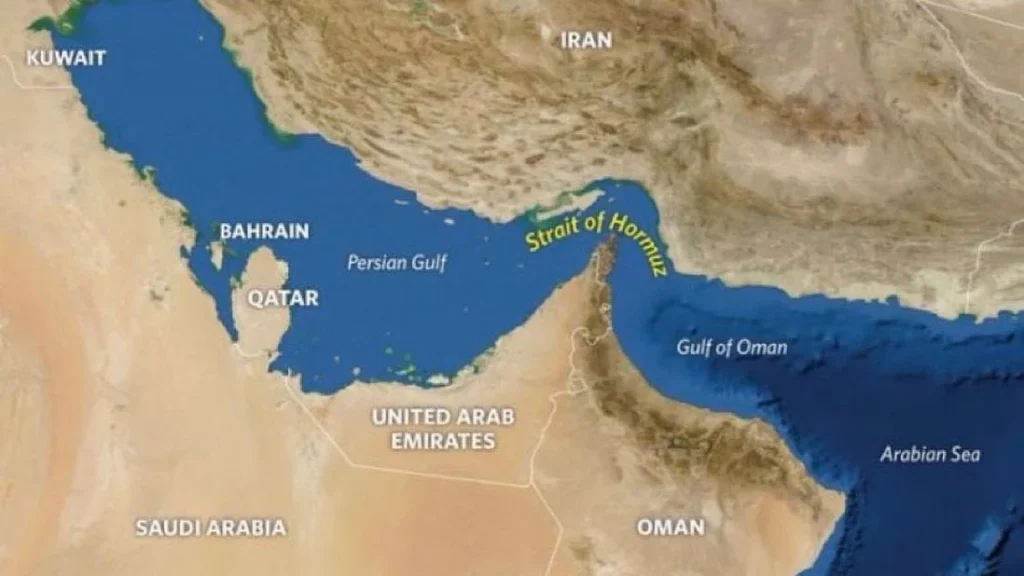Iran Closing Strait of Hormuz Could Spark Global Crisis: Here’s What to Expect
As tensions in the Middle East escalate following Iran’s threats to close the Strait of Hormuz, experts are warning of a potential economic disaster that could ripple across every continent. The narrow waterway, which handles more than 30% of the world’s seaborne oil and a significant share of global LNG exports, is one of the most critical chokepoints in global trade. A complete shutdown would trigger a domino effect, threatening energy security, economic stability, and global peace.
LNG Exports Disrupted: Asia and Europe at Risk
Qatar, the world’s leading LNG exporter, ships most of its natural gas through the Strait. A blockade would bring its exports to a standstill, choking Europe and Asia of critical winter energy supplies. This would immediately trigger soaring gas prices in Europe, similar to the post-Ukraine invasion surge.
Europe Faces Renewed Energy Crisis
Countries like Germany, Italy, and France would face a full-blown energy crunch. Utility bills would soar, and industrial production could be forced to slow down. European nations would rush to secure LNG from the U.S., Algeria, and Norway, spiking global competition.
📈 Oil & Gas Prices Skyrocket
A blockade would send Brent crude oil prices soaring above $130/barrel. Gasoline in the U.S. could spike to $5–$7 per gallon. Diesel, jet fuel, and even heating oil would face shortages, leading to price hikes in transportation, goods, and services.
Petrochemical Industry in Turmoil
The disruption would affect not only fuels but also essential petrochemical feedstocks. This impacts everything from plastics to fertilizers to industrial solvents, creating a cascading effect on multiple sectors, including agriculture, pharmaceuticals, and manufacturing.
Global Stock Markets Rattle
Investors would panic. Energy-intensive sectors like airlines, shipping, and logistics could collapse. Broader indices could plunge as fears of a global recession mount, reminiscent of the 2008 financial contagion.
Central Banks in a Bind
Just as central banks were preparing to pivot toward rate cuts, a new inflationary wave could force them back into tightening mode. The U.S. Federal Reserve, ECB, and even the RBI in India may be forced to raise rates to tame surging prices, risking a double-dip recession.
Global Recession Becomes Likely
Nations dependent on imported fuel—such as India, China, and most of Africa—would face energy crises. Industrial output would fall, and inflation would erode purchasing power. Economists warn of a potential synchronized global slowdown.
Military Escalation Almost Certain
A U.S.-led military response to secure the Strait would almost certainly follow, increasing the risk of a confrontation with Iran. Naval clashes, missile attacks, or cyber warfare could drag the region—and the world—into deeper conflict.
Shipping Chaos Ensues
Oil and gas tankers would halt or be forced to reroute around Africa, adding weeks to delivery times. Insurance premiums would skyrocket, and the Strait could be officially declared a war-risk zone by Lloyd’s of London.
Alternative Routes Are Limited
Saudi Arabia and the UAE have pipelines that bypass Hormuz, but they can only handle a fraction of the Gulf’s export capacity. These routes are also vulnerable to drone or missile attacks, making them unreliable during wartime.
China and India Seek Emergency Alternatives
Both nations are already in talks with Russia and Latin American exporters to ensure fuel security. India may boost its strategic oil reserves while China accelerates its purchases via land routes and discounted Russian crude.
Russia Gains From Market Disruption
Russia, under Western sanctions, would benefit from the turmoil. Higher prices mean greater revenue despite lower volumes. Moscow could also leverage the crisis to push Europe away from Western alignment.
UN Action Paralyzed
Any meaningful resolution through the United Nations would likely be blocked by Russian and Chinese vetoes, complicating diplomatic efforts and delaying peace negotiations.
U.S. Faces Domestic Fallout
With gas prices likely to soar past $6, American households would be hit hard. The Biden administration, already grappling with inflation, may face mounting political backlash. Strategic petroleum reserves may be tapped again, but with limited effect in such a massive disruption.
Conclusion: A Crisis in the Making
The Strait of Hormuz is not just a geographic location—it’s a pressure point for the global economy. Its closure by Iran would ignite a full-blown global emergency, crippling energy markets, destabilizing economies, and escalating military tensions. For now, the world watches nervously, hoping diplomacy prevails.
Please don’t forget to leave a review.

